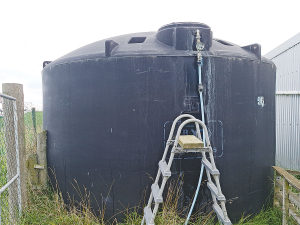Regional councils welcome certainty around RMA
Regional councils are welcoming the certainty for councils in today’s Resource Management Act (RMA) announcement by the Government.
 LGNZ says it’s clear that one size does not fit all when it comes to water reforms in our rural communities.
LGNZ says it’s clear that one size does not fit all when it comes to water reforms in our rural communities.
OPINION: Local Government NZ (LGNZ) has long advocated for privately owned rural water supplies to stay in community ownership - as part of the Three Waters Reform.
The Rural Supplies Working Group (RSWG) recommendations - recently released by the Department of Internal Affairs - confirms that private supplies won't transfer to new entities.
This is a real win for our rural communities. There are tens of thousands of privately owned rural supplies, compared with only about 100 council-owned ones.
It's only council-owned schemes that are affected by Three Waters reform.
It's clear that one size does not fit all when it comes to water reforms in our rural communities. In these communities, water is used for stock and irrigation as well as household drinking water. This creates unique issues for rural users
For example, lack of water supply in summer can quickly become an animal welfare issue.
Some rural water schemes have complex histories, including management and maintenance by their communities. We've heard time and time again that there's a strong sense of ownership.
That's why it was so important to see the RSWG recommend a process where council-owned schemes that are mostly used as stock or irrigation schemes could go back to community ownership.
There's currently a lot of confusion about the difference between three waters reform and the new regulatory regime. All suppliers, including the privately owned ones, will need to meet the regulatory standards, though there will be some time to put this in place.
Taumata Arowai is the new regulator responsible for drinking water quality and making sure water suppliers meet standards.
Rural, small supplies must be registered by 15 November 2025 and be compliant by November 2028. It's not happening tomorrow - there's plenty of time.
The local government sector strongly supports the new water regulator upholding public safety standards.
Misinformation has been behind much of the confusion in our rural communities. The recommendations announced will come as welcome relief for people living in some of our most remote parts of the country.
LGNZ wants the Minister for Local Government, Nanaia Mahuta, to be getting out there and meeting our rural communities. She needs to reassure them that private supplies aren't being transferred to the new entities and answer any questions these communities may have.
Stuart Crosby is president of Local Government NZ.
The Meat Industry Association of New Zealand (MIA) today announced that Chief Executive Officer Sirma Karapeeva has resigned from the role.
The winners of the 2026 Hawke’s Bay/Wairarapa Dairy Industry Awards were announced at the annual awards dinner held at Copthorne Solway Park in Masterton on Thursday evening.
Environment Southland is welcoming this week’s decision by the Environmental Protection Authority (EPA) to approve the release of Blaptea elguetai, a leaf‑feeding beetle that will help control the highly invasive Chilean flame creeper.
This March, the potato industry is proudly celebrating International Women’s Day on 8 March alongside the International Year of the Woman Farmer, recognising the vital role women play across every part of the sector — from paddocks and packhouses to research, leadership, and innovation.
Fruit trader Seeka posted a record profit and returns to shareholders in 2025.
Recent weather events in the Bay of Plenty, Gisborne/Tairawhiti, and Canterbury have been declared a medium-scale adverse event.

OPINION: A mate of yours truly reckons rural Manawatu families are the latest to suffer under what he calls the…
OPINION: If old Winston Peters thinks building trade relations with new nations, such as India, isn't a necessary investment in…